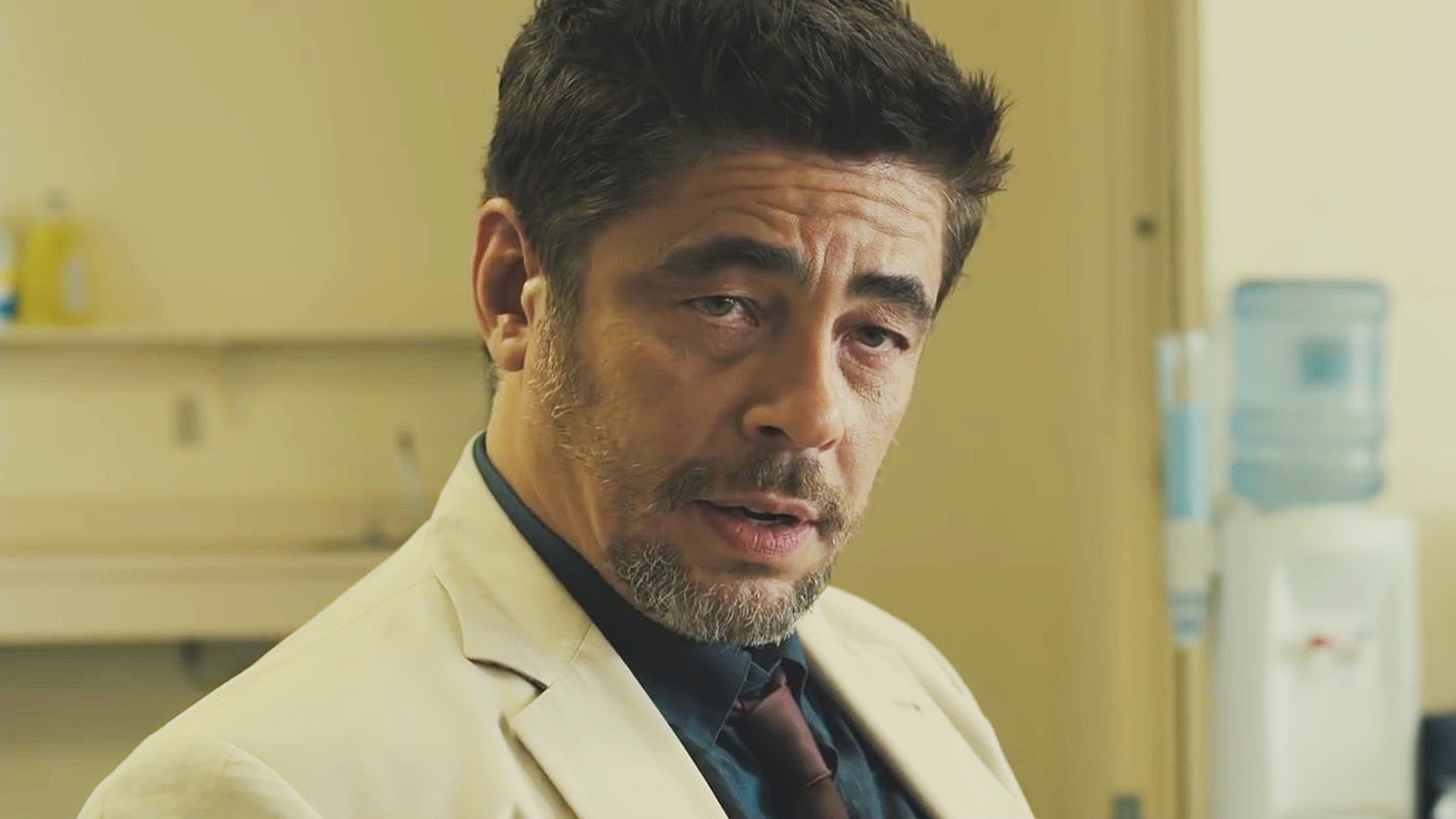
Violence, deceit, and criminal activities within an urban setting seem to be the main landscape that we most commonly associate with the crime thriller genre. However, these are used more than often as canvases to represent some deeply personal and emotional stories.
From self-doubt, hatred and paranoia to jealousy, repentance and fear, the genre is full of great works, many of which are considered among the best films of the 21st century.
20. A Prophet (Jacques Audiard, 2009)
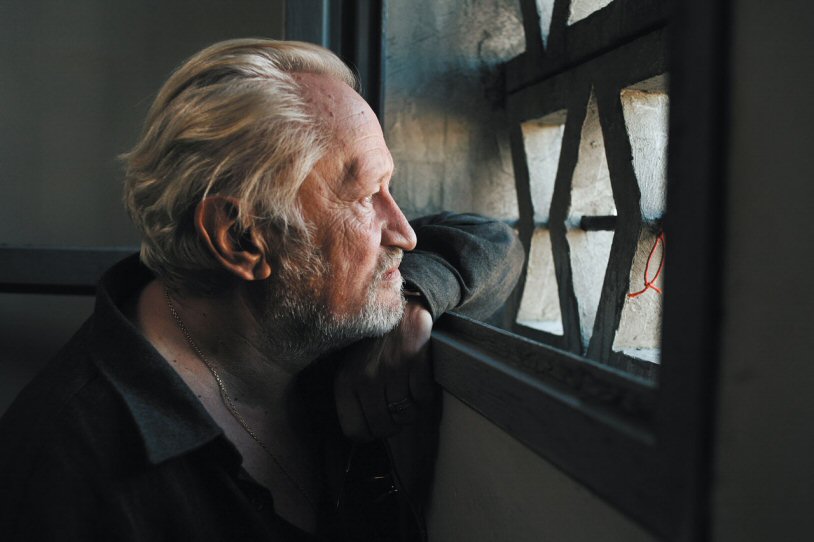
Audiard’s drama about a young Frenchman of Algerian descent who tries to survive during the six years of imprisonment he has been condemned to is an interesting and rewarding work that explores how hierarchies operate and articulate within these kinds of environments.
The most dramatic thing about the film is to see how its protagonist, Malik El Djebena (Tahar Rahim), goes from being a petty criminal to a murderer and drug trafficker as he navigates through the various factions that inhabit the complex.
As he ascends through the ranks, Malik also struggles as an inmate in order to become a more assertive and capable individual as he learns to write and read, while still diving into the dangerous and uncertain criminal underworld that surrounds him.
19. Road to Perdition (Sam Mendes, 2002)
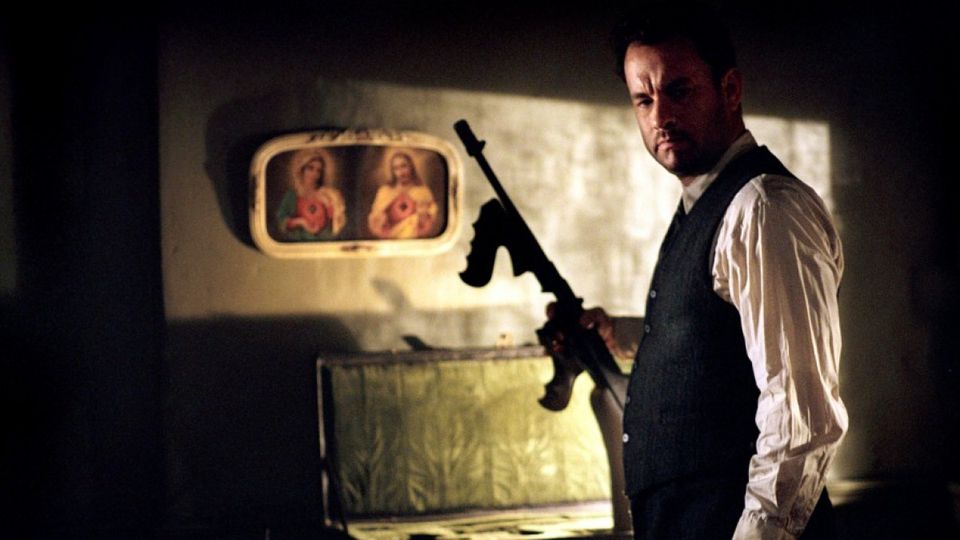
After the big success of “American Beauty” in 1999, Sam Mendes opted for a more conventional, less talkative, and more straightforward film for his second effort.
Set in 1931 during the Great Depression, “Road to Perdition” tells the story of Michael Sullivan (Tom Hanks), an Irish mobster, and his son Michael Jr. (Tyler Hoechlin) as they are chased down after the boy witnesses a shooting between his father and a mafia associate and his men.
The film, thanks to Mendes’ direction and the spectacular cinematography from Conrad L. Hall, not only contains some great action set pieces, but it also excels in its most intimate moments, getting across the complicated relationship between the boy and his father through its framing and art direction.
The final scene is both thrilling and emotionally resonant, deftly playing with its very few elements, staying away from complicated and contrived camerawork in an ending that feels both bittersweet and satisfying.
18. Mystic River (Clint Eastwood, 2003)
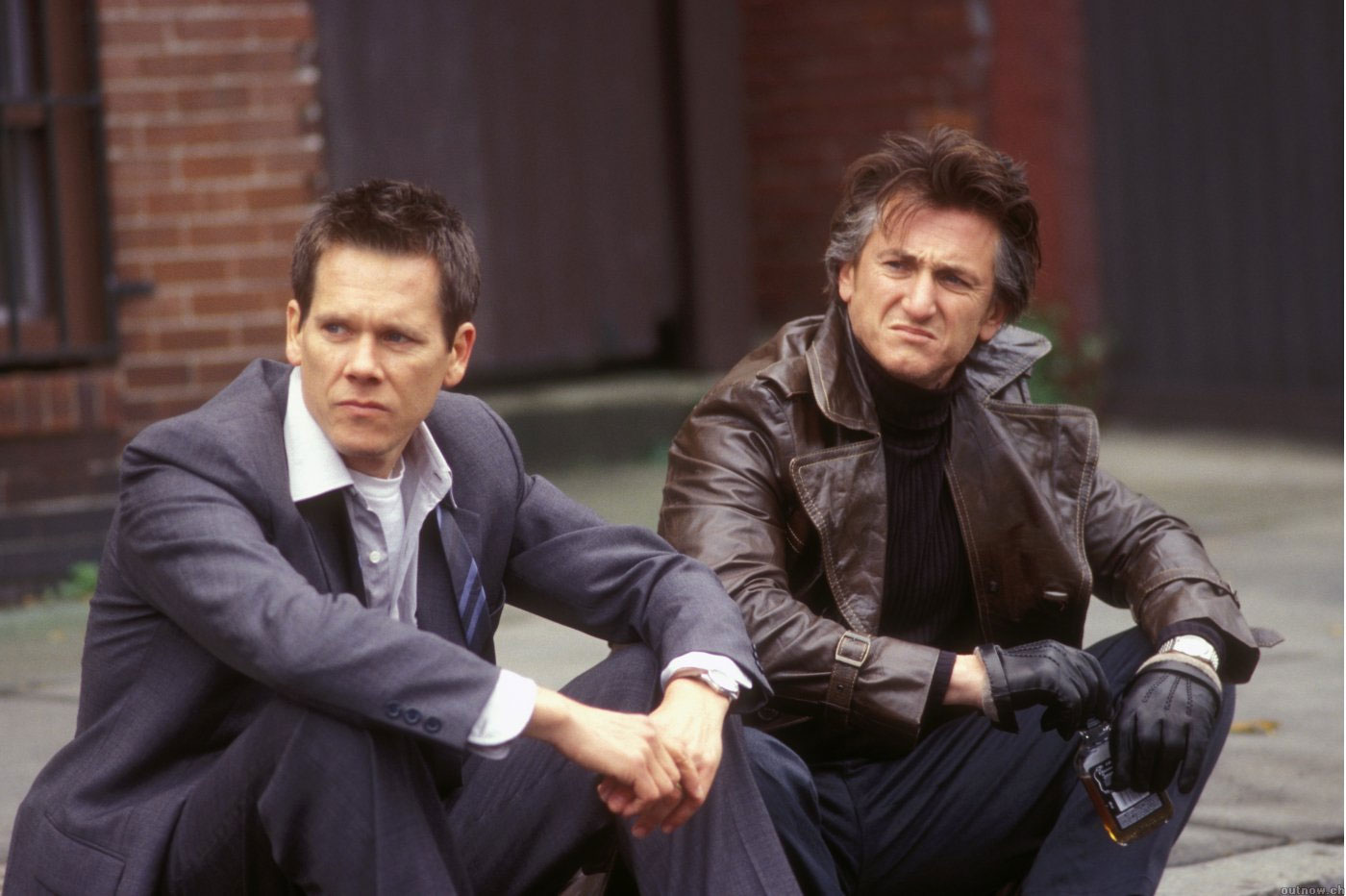
“Mystic River” follows the lives of Jimmy (Sean Penn), Dave (Tim Robbins) and Sean (Kevin Bacon), three childhood friends whose lives drift apart after one of them (Dave) is abducted and sexually abused by two men pretending to be police officers.
They meet again twenty-five years later after Jimmy’s daughter, Katie (Emmy Rossum), is brutally murdered during a night out with her girlfriends. Jimmy is a former criminal who now owns a grocery store, Sean is the Massachusetts State Police detective in charge of Katie’s case and Dave works a blue-collar job.
The film, based on the novel of the same name by Dennis Lehane, deals with the effects of trauma and how they can shape someone’s life over the years. In the beginning we see the three friends playing hockey in the street, only to witness how their paths wander away from each other: while Jimmy prefers to take care of the matters on his own, Sean represents the opposing view, becoming the enforcer of the law, and Dave, while still a survivor, has seen his life has cut short since the incident and is unable to fully cope with his trauma.
The film has the characteristic elegiac tone that Eastwood commonly uses in his dramas, with the ever-blue river dyeing the streets of Boston and the lives of the protagonists. The three strands of the same thread separated and united by misfortune.
17. Prisoners (Denis Villeneuve, 2013)

Denis Villeneuve’s film about a father named Keller Dover (Hugh Jackman), whose daughter has been abducted along with other young girl in Pennsylvania, is a thrilling and resonant drama.
Faced with the police’s inability to advance the case, Dover kidnaps the police’s main suspect, Alex (Paul Dano), a mentally challenged young man, and begins to torture him in an abandoned house in order to get information. While this is happening, Detective Loki (Jake Gyllenhaal) leads the police investigation against the clock to save the girls.
The film focuses on how easily desperation can turn good men into monsters with its clear parallels between what happens to Dover’s daughter and what Dover himself decides to do to Alex. We see how Jackman’s character slowly becomes something he hates without noticing, but we also understand his motives and feelings, and how on the edge he must be due to the situation.
“Prisoners” is a long and dark ride but nonetheless interesting and engrossing all the way thanks to how respectfully it handles its subject matter and its gorgeous cinematography by Roger Deakins.
16. Sicario (Denis Villeneuve, 2015)
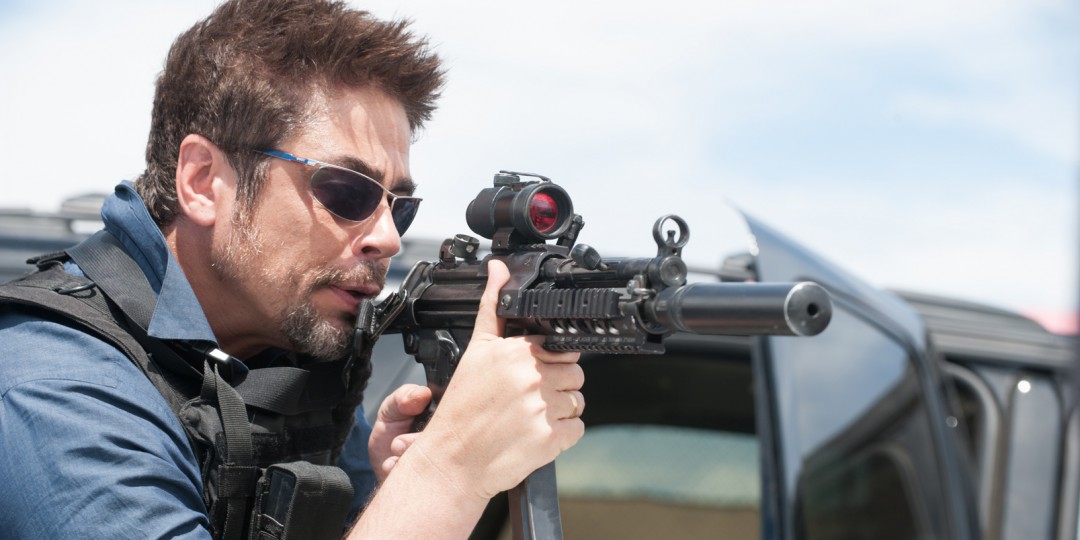
While “Prisoners” is a deeply emotional and personal work, “Sicario” is a very different beast from Villeneuve. If the characters from the former found themselves navigating a gray moral area, most of the the ones found in “Sicario” make it perfectly clear that they’re willing to do whatever it takes to get what they want with no remorse whatsoever.
The movie is tense throughout its entire footage, but it gets downright terrifying when it gets to Ciudad Juarez. We are shown the border between US and Mexico with ominous aerial shots, focusing on how close Juarez is from its suburban counterpart inside the States as the characters traverse the border and into the city.
“Sicario” is a brutal, ambitious and even controversial take on the War on Drugs while also being a showcase for Villeneuve’s skills when it comes to conveying tension and creating gripping scenes inside an amoral world.
15. Winter’s Bone (Debra Granik, 2010)
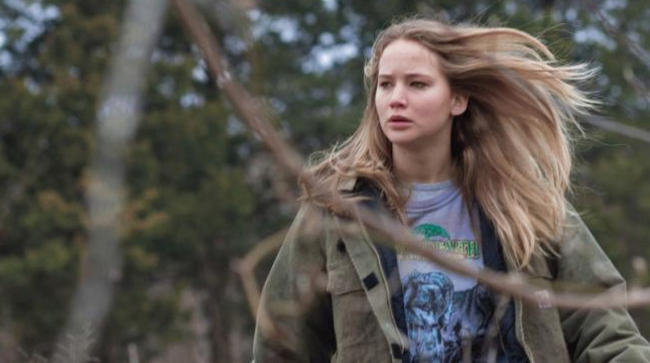
The 2010 Oscar-nominated breakthrough film for Jennifer Lawrence and director Debra Granik is a cold, miserable, uncomfortable but nonetheless incredibly engaging and rewarding experience.
Adapted from the 2006 novel by the same name written by Daniel Woodrell, the film, set in the rural Ozarks of Missouri, deftly mixes family drama and mystery thriller, telling the story of Ree Dolly (Lawrence), a 17-year-old girl who must find her missing father before she and her family are evicted from their house.
The film uses its premise to explore the relationships between the protagonist and her family as well as with the environment in which they’ve been raised. In the same way that Ree follows the clues to her father’s location, she also unravels his past. At the end, she’s not only severed her ties with him physically, but also emotionally in a film that shows how the sins of the parents can take their toll on the lives of their sons and daughters, even when they’re long gone.
14. Green Room (Jeremy Saulnier, 2015)
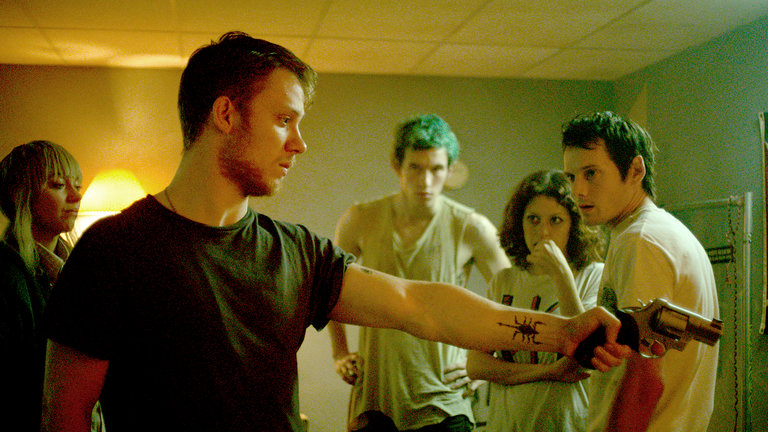
A young hardcore punk band called the Ain’t Rights are hunted down and killed one by one after playing an improvised gig at a neo-Nazi bar after their bassist Pat (played by the late Anton Yelchin in one of his last roles) discovers the body of a girl who has been murdered in one of its back rooms.
From the beginning, it is clear that “Green Room” is a special film for director Jeremy Saulnier. Saulnier, who was part of the hardcore punk scene of the early ‘90s, perfectly captures within the film’s first minutes how it feels to be in a band while you’re young: tight van trips, idealistic but awkward interviews trying to do your influences justice, and not earning a penny in the process.
This contrasts heavily with the brutal violence that follows in the film. We see people being mauled by dogs, shot at point blank with shotguns, and hacked and/or stabbed to death using machetes and knives. Saulnier, who previously worked as a cinematographer, is not shy when it comes to showing the carnage and cruelty that the protagonists are subjected to, but is still able to end the film on a depressing but satisfactory note.
13. Drive (Nicolas Winding Refn, 2011)
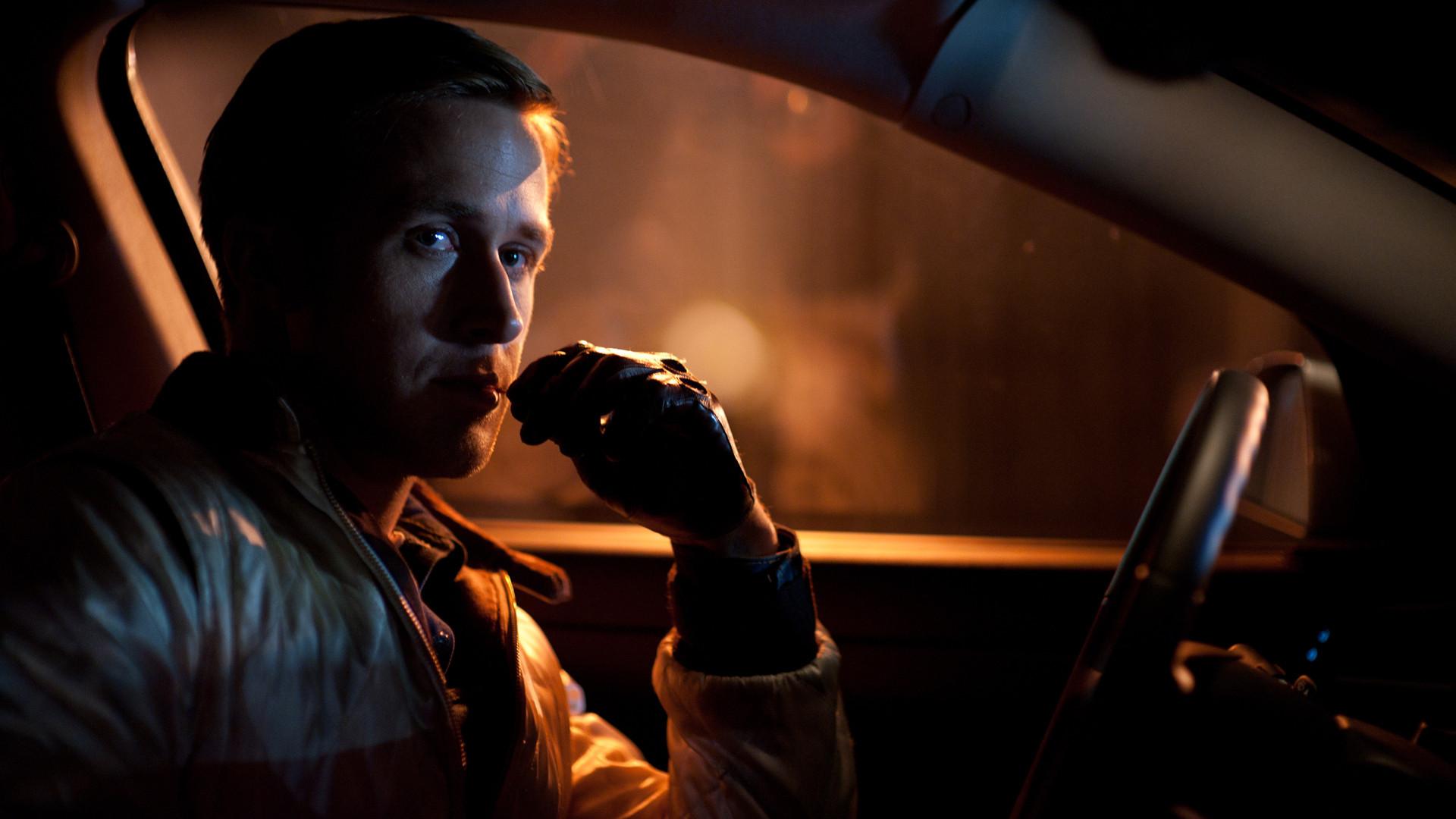
Looking back, the influence that Nicolas Winding Refn’s work about a stoic (to say the least) Hollywood stunt driver who spends his nights as a getaway driver has had in popular culture since its premiere in 2011 is kind of unbelievable.
From the impact that the film has had in the ’80s revival we’ve seen in recent years, to the iconic white scorpion-themed jacket worn by its protagonist, “Drive” is full of memorable moments and sequences: the opening chase sequence, the improvised trip through the LA River along College’s “A Real Hero,” the fight in the elevator, the mask worn by the Driver, etc.
The movie is a slow, stripped-down neo-noir with great performances from an incredible cast that includes Carey Mulligan, Albert Brooks, Bryan Cranston, Ron Perlman, Oscar Isaac and Christina Hendricks, among others. Refn’s films, while not always well-received by critics and the public, are persistently uncompromising and visually stimulating, and “Drive” is the best place to get into his filmography.
12. Oldboy (Park Chan-wook, 2003)
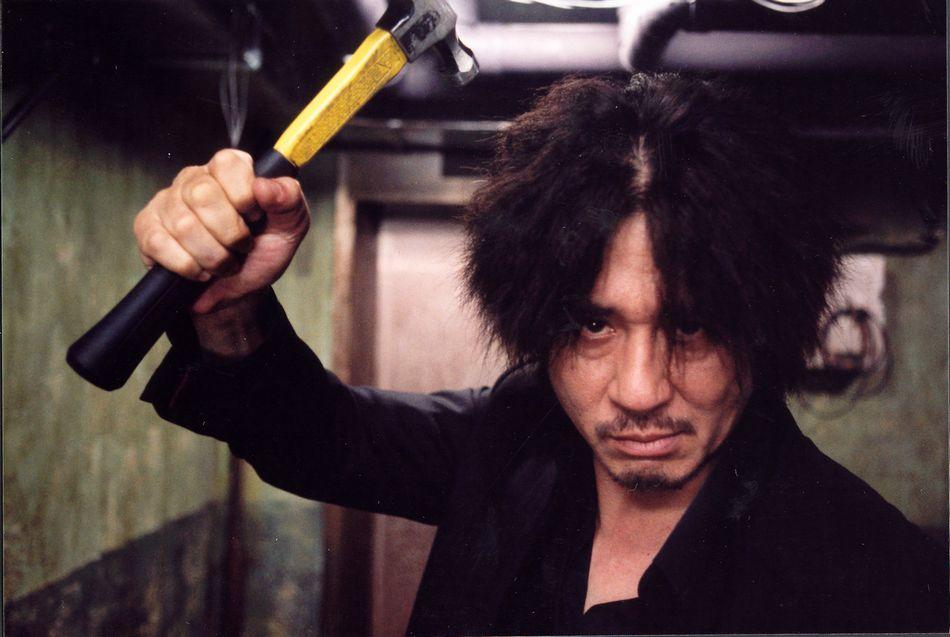
This modern and twisted revenge flick based on the manga by the same name about a businessman named Oh Dae-su (Choi Min-sik), who has been imprisoned for 15 years for seemingly no reason, is probably one of the most notorious South Korean films of all time.
In his second installment of his so-called “Vengeance Trilogy,” Park Chan-wook manages to mix Alexandre Dumas’ “The Count of Monte Cristo” with Sophocles’ classic “Oedipus Rex,” while still subverting both of them in a violent and darkly funny film.
Park’s filmaking is unorthodox and borrows from several genres and mediums like in the famous side-scroll fight sequence. In the end, the film stands out as a tragic, intense, and endlessly entertaining work that thanks to its ambiguous nature and abandonment when it comes to show its highly violent and controversial themes is able to reconcile Greek tragedy with highly stylized action.
11. No Country for Old Men (Joel & Ethan Coen, 2007)
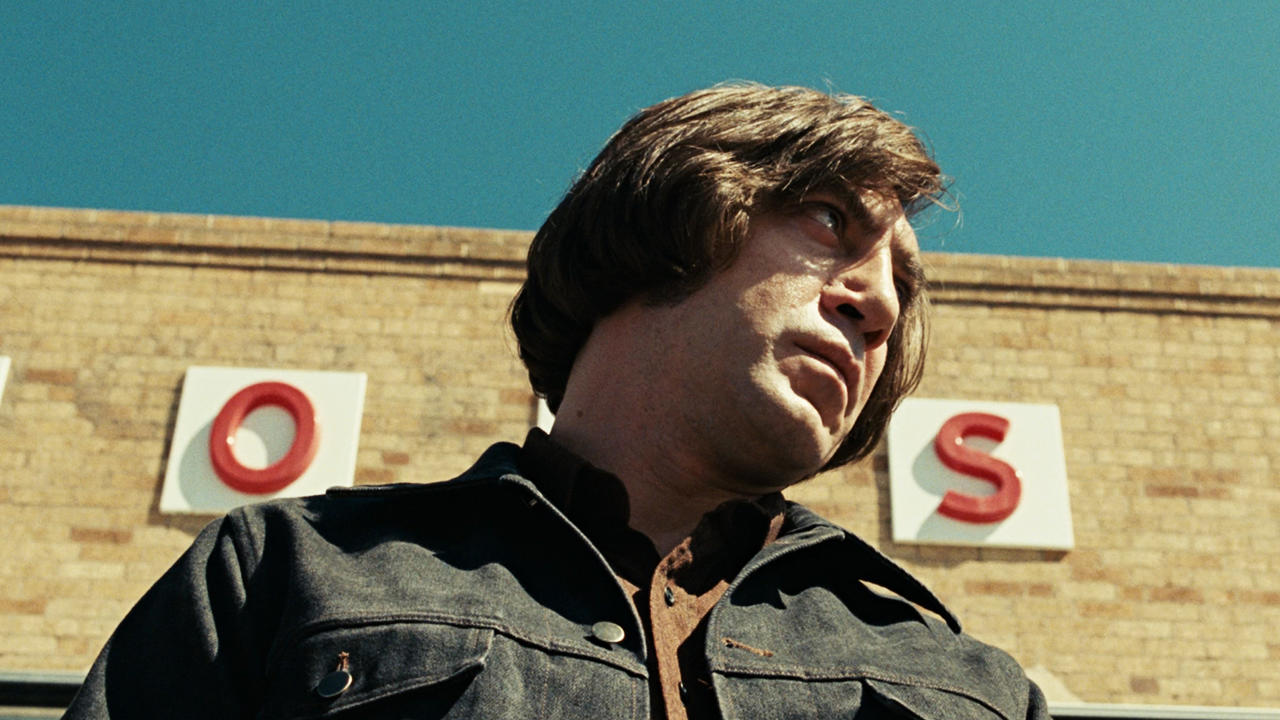
Perhaps one of the coldest and most ruthless films in the Coens’ oeuvre, “No Country for Old Men” is also regarded as one of their best works, having went on to win four Academy Awards, including Best Picture and Best Director.
The film, based on the Cormac McCarthy novel that came out in 2005, tells the story of Llewelyn Moss (Josh Brolin), a Vietnam War veteran turned welder who stumbles upon the aftermath of a shooting between drug dealers. Walking through the scene, he finds a briefcase with two million dollars, which he decides to keep for himself, prompting the mafia bosses to hire Anton Chigurh (Javier Bardem) in order to find him and kill him.
Bardem’s portrayal of Chigurh is perhaps the most memorable thing from the film. A psychopath who seems to adhere to his own self-made principles to a fault, being especially keen on trying to make his victims understand how they have carved their own paths to their destruction.